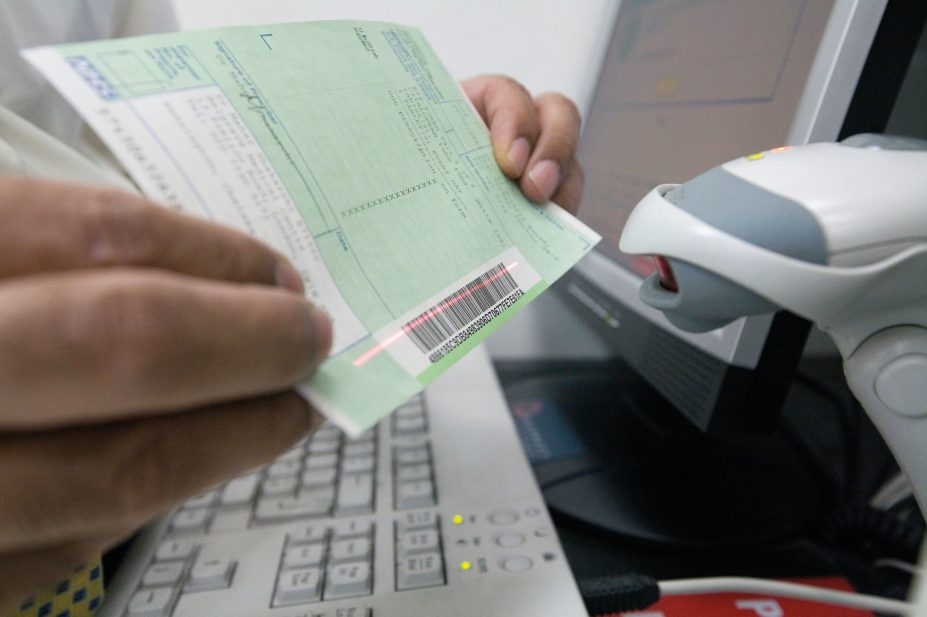
Mark Thomas / Science Photo Library
Paper prescriptions will become “a rare thing” in the next 12 months, according to NHS Digital’s programme director for digital medicines.
Speaking to The Pharmaceutical Journal, Richard Ashcroft said that although the number of prescriptions issued through the electronic prescription service (EPS) “will probably never be precisely 100%”, the organisation is aiming for the percentage of prescriptions going through the EPS to reach “the mid 90s”.
Ashcroft said he expects to hit this EPS prescribing target in the next 12 months.
The EPS, which allows prescribers to send prescriptions electronically to a pharmacy of the patient’s choice, is now in its fourth pilot phase, which has led to 68% of all prescriptions being issued electronically across England, he said.
The fourth phase of the EPS pilot involved launching the system in four GP practice pilot sites in November 2018. As a result, prescribers working at the pilot sites can issue patients with a barcoded prescription — or ‘token’ — which can then be processed electronically at any pharmacy across the country.
Ashcroft said EPS phase four was now live “in about 56 GP practices”, with around 2,000 pharmacies having dispensed a phase four prescription (as of the end of July 2019).
He added that increasing the number of EPS prescriptions issued will also depend on the roll out of controlled drugs dispensing through the EPS.
Currently, GP practices using either TPP SystmOne, Vision or EMIS Web can prescribe controlled drugs electronically.
“I’m pretty confident over the next 12 months that the paper prescription will really start to become quite a rare thing to see,” he said. “But there will still be an element of patient choice that they may still want a paper prescription or may still need it, but it will be real exceptions.”
Ashcroft added that five pharmacies across the country are already seeing 100% use of EPS. “We’ve got five pharmacies now, where the delivery and enhancements of those two programmes means that every single prescription that can go through [the] EPS is now going through [the] EPS,” he said.
He added that the EPS may need “some kind of refresh” in ten years’ time, although he was unable to say what this might involve.
You may also be interested in

Reviewing prescribing practice in an adult critical care unit with a newly implemented electronic prescribing system
